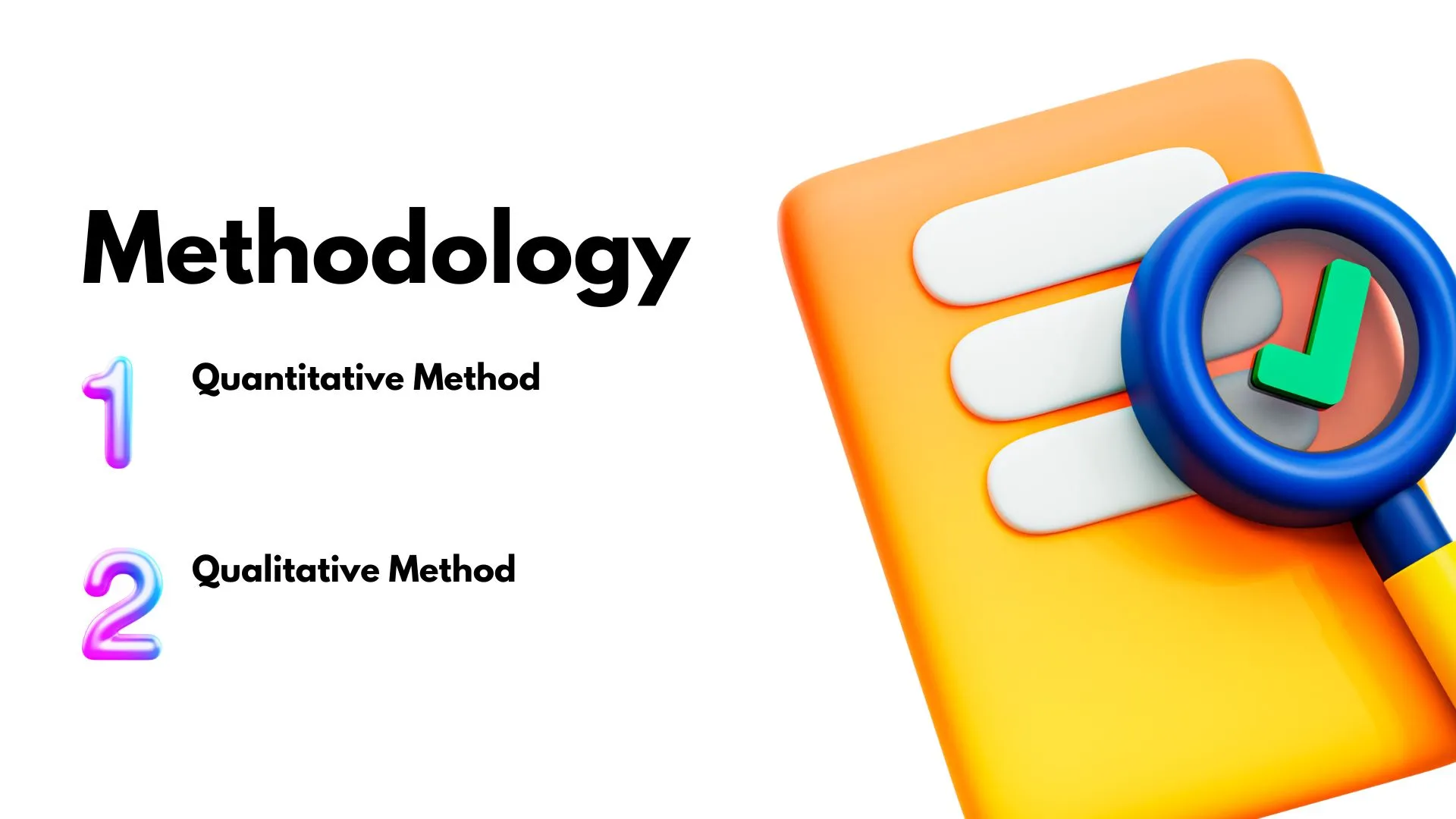Methodology is a set of methods, techniques and procedures used to conduct research, solve a problem or achieve a specific objective. In other words, it is a systematic and organized approach to collecting, analyzing and interpreting information or data. The methodology can be applied in several areas, such as social sciences, natural sciences, engineering, education and health, among others.
The term “methodology” spans a variety of areas and disciplines, referring to the study and application of systematic methods, techniques, and processes to conduct research, manage projects, or solve problems. Methodologies are essential to ensure the effectiveness and efficiency of processes, providing an organized structure and a set of principles that guide activities and decisions at each stage.
The choice of an adequate methodology depends on the characteristics and limitations of the object of study or the problem to be solved, as well as the needs and available resources. The scope of the term “methodology” demonstrates its importance and versatility in different contexts, helping professionals and researchers to achieve significant and reliable results in their respective areas.
Read the article describing the difference between methodology, method, process and technique.
Methodology in the context of Scientific Research
The methodology in the context of scientific research is a set of systematic and organized approaches to conduct studies and investigations in different areas of knowledge. The choice of the appropriate methodology is crucial to guarantee the validity, reliability and replicability of the results obtained, as well as the acceptance of the findings by the scientific community.
In scientific research, the adopted methodology must be appropriate to the characteristics and limitations of the object of study and to the formulated research questions. In addition, it is critical to consider available resources such as time, funding, and equipment. The methodologies can be classified into:
- Quantitative: based on the collection and analysis of numerical data and the application of statistical techniques. Examples include controlled experiments, surveys and regression analyses.
- Qualitative: involve the interpretation and analysis of texts, discourses, behaviors and subjective experiences. Examples include interviews, participant observations, content analysis, and case studies.
- Mixed methodology: combination of quantitative and qualitative methods to obtain a broader understanding of the phenomenon under study.
When conducting scientific research, it is important to strictly follow the steps of the chosen methodology, which generally include: defining the problem and research questions, reviewing the literature, choosing the sample, collecting and analyzing data, interpreting the results and drawing conclusions. . In addition, researchers must be aware of research ethics, ensuring respect for participants, protection of confidential information, and academic integrity throughout the process.
The choice of the appropriate methodology is essential to guarantee the validity and reliability of the results obtained in a research or project. In addition, the methodology adopted must be in accordance with the characteristics and limitations of the object of study, as well as the resources available to carry out the work. In general, methodologies can be classified as quantitative (based on numbers and statistics) or qualitative (based on the interpretation and analysis of texts, discourses and behaviors). Often, researchers combine quantitative and qualitative methods in a single study, using an approach called blended methodology.
Methodology in the Context of Problem Solving
The methodology in the context of problem solving is a structured process that guides the identification, analysis and solution of challenges in different areas, such as business, engineering, design and science in general. These methodologies provide a set of steps, techniques and tools to assist in decision making, in the development of innovative solutions and in the continuous improvement of processes.
When applying a problem solving methodology, the first step usually involves clearly defining the problem, followed by collecting and analyzing relevant information. Possible solutions are then identified, evaluated, and prioritized based on criteria such as feasibility, cost-effectiveness, and impact. After selecting the best solution, it is implemented and monitored to ensure the desired results are achieved. Finally, the lessons learned during the process are incorporated into future practices, improving the effectiveness of the methodology. Throughout the entire process, collaboration and communication between team members is critical to ensuring efficient and effective issue resolution.
There are several methodologies applied to problem solving, adapted to different contexts and challenges. Some examples include:
Design Thinking: a human-centered approach that aims to solve complex problems through empathy, experimentation and rapid prototyping. Design Thinking is widely used in the development of innovative products and services, as well as in improving processes and solving organizational problems.
Six Sigma: a process improvement methodology that focuses on reducing defects and variations in order to optimize quality and efficiency. Six Sigma uses statistical tools and project management techniques to analyze and improve processes in industries such as manufacturing, healthcare and finance.
Methodology in the Context of Project Planning and Management
The methodology in the context of planning to achieve a goal and in projects is a set of approaches, techniques and tools that guide the organization and execution of the activities necessary to achieve specific results. These methodologies help you set clear goals, efficiently allocate resources, manage risk and monitor progress, ensuring successful project completion.
There are several project management methodologies, each with its characteristics and benefits, suitable for different types of projects and organizational contexts. Some of the more common methodologies include:
Waterfall: A linear and sequential approach, in which each phase of the project is completed before moving on to the next. It is widely used in construction projects and software development, where the steps are well defined and the requirements are stable.
Agile (Agile): an iterative and flexible approach, which allows rapid adaptation to changes and continuous delivery of value throughout the project. Agile is especially suited to complex and rapidly evolving projects, such as the development of innovative products and services.
Scrum: an agile methodology that involves dividing the project into sprints (short cycles of work) and holding daily meetings to synchronize the team’s work. Scrum is effective in promoting collaboration, transparency and continuous learning.
Lean: an approach that aims to optimize project processes, eliminating waste and maximizing the creation of value for the client. Lean is often applied in manufacturing, logistics and continuous improvement projects.
When applying a project planning and management methodology, it is essential to consider the specific needs and constraints of the project and the organization, as well as the skills and abilities of the team involved. Furthermore, it is important to monitor and adjust the methodology as necessary in order to ensure the efficiency and effectiveness of the process and ultimately success in achieving the objective.
Therefore, it is important to consider several factors that can influence the effectiveness and success of the project when choosing the methodology. Some of these factors include:
Nature of the project: the complexity, scope and objectives of the project are crucial factors in choosing the methodology. For example, software projects might benefit from agile methodologies, while construction projects might be better suited to waterfall approaches.
Requirements and Constraints: The chosen methodology must be able to deal with the constraints of time, budget, resources and regulations applicable to the project.
Risks and uncertainties: the selected approach must allow the identification, assessment and management of risks and uncertainties that may affect the project.
Flexibility and adaptability: in projects with a high degree of change and uncertainty, a flexible and adaptable methodology, such as Agile, may be more suitable than more rigid and linear approaches.
Size and composition of the team: the methodology must be compatible with the size of the team and the set of skills and competences of the team members.
Organizational culture and context: the chosen approach must be aligned with the culture, values and practices of the organization, as well as with the sector and market context.
Previous experiences and learning: consider the team’s and organization’s past experiences with different methodologies and learn from successes and failures to choose the most appropriate approach.
Communication and Collaboration: The selected methodology should facilitate efficient communication and collaboration between team members and other stakeholders.
Taking these factors into account, it is possible to select and implement a methodology that optimizes the project management process, increases efficiency and maximizes the chances of success.
Final considerations
In conclusion, methodology plays a key role in many contexts, including scientific research, problem solving and project management.
The choice of the appropriate methodology is essential to ensure effectiveness, efficiency and success in achieving objectives. It is important to consider the characteristics and limitations of the object of study, project or problem, as well as the available resources and skills.
By understanding and applying appropriate methodologies, it is possible to address challenges in a structured and organized manner, optimizing processes, promoting innovation and generating significant results.
Therefore, by developing skills and knowledge related to methodologies, professionals and researchers will be better prepared to face the challenges and opportunities in their respective areas.







Comments